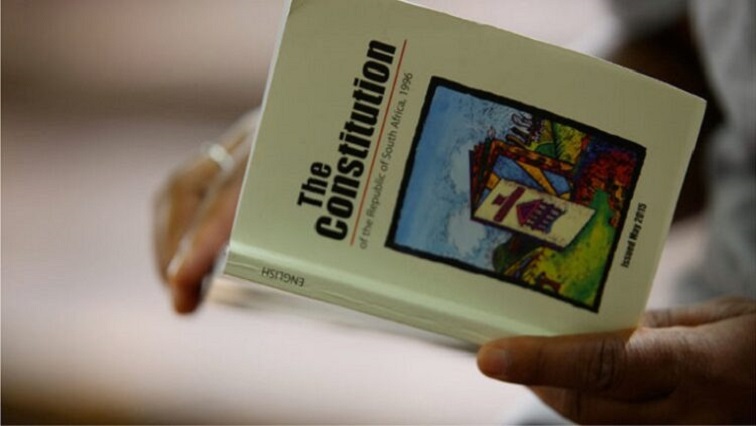The end of an oppressive apartheid regime and the transition to democracy sparked widespread optimism across the country. The promise of a society where all were equal was seen as an attainable vision.
Negotiations began to shape the country’s future. The date for South Africa’s first non-racial elections was announced by Cyril Ramaphosa, then- African National Congress’ chief negotiator and now President of the country.
However, reflecting on the Constitution as South Africa marks the 27th anniversary of the Constitution’s adoption amid an array of socioeconomic challenges, former chief negotiator for the National Party in the 1990s, Roelf Meyer says drafters of the Constitution failed to plan for its execution.
Meyer says the document was not only designed to transform society but to ensure that the injustices of the past never resurface.
“If blame is to be put, I include myself. But also the newly elected representatives on behalf of the people. Because they should have taken responsibility, all of us should have taken responsibility. I was still there, I was part of the government of [former] President [Nelson] Mandela. I was part of the elected government and I think that is the blame that we have to face ourselves. Today is to say, we didn’t sufficiently take care of what needed to be done, [to] make sure socio-economic transformation takes place,” explains Meyer.
29 years ago, the country’s first democratic President Nelson Mandela gave his inaugural speech under the new dispensation. It was a day of hope for many wishing for a better life.
29 years since Mandela gave his inaugural speech:
A key document that would help design and maintain this change would be the Constitution of the Republic of South Africa. The blueprint would not only transform society but would afford everyone rights that would ensure that the injustices of the past never resurface.
Two years after his inauguration, Mandela signed the Constitution into law in Sharpeville, in Vereeniging, on 10 December, which is International Human Rights Day to much praise.
Former ANC Chief Negotiator Cyril Ramaphosa said, “It is undeniably a document that has legitimacy and credibility … in the process, a new vision of what it means for our country to be a constitutional state has begun to take route ”
As South Africa continued to grow, this promise appeared to become a distant dream as life for many became stagnant.
Challenges
For the life of the Constitution, South Africa’s lived experiences especially among Black South Africans, have been in contrast with its ideals. While some have seen progress, others have not seen any material transformative benefit from the Constitution.
The gap between the rich and the poor continues to grow.
Private and public healthcare sit on different ends of the spectrum with an elite few enjoying the full right to healthcare, while the public hospitals are always crowded and sometimes lack the resources.
The majority of black South Africans continue to languish in poverty and land reform has not been achieved.
Prompting many to conclude that this highly regarded document may not be worth more than the paper it is written on.
“It only works for those people who are up there, for us poor people we still remain the same we still remain poor,” laments a citizen
Another one adds “So for me, I will say the constitution has not been working good enough for us. It’s not working because people in power have money, people in power are fine they do not have stress pf anything and they do not think about the unprivileged people of South Africa.”
While the Constitution, which has been hailed as a progressive piece of legislation across the globe, continues to be defended, it has experienced a disconnect with the citizens it is intended to serve, furthermore along racial lines.






